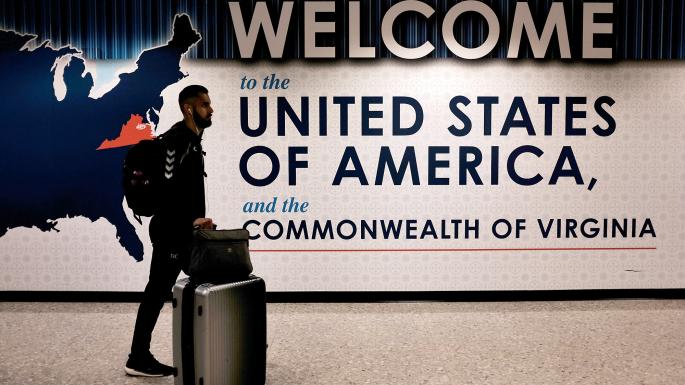
Visa applicants will need close family or business ties in US
The US will require visa applicants from six predominantly Muslim countries and all refugees to have a close family or business tie in the country, according to new criteria announced last night.
As President Trump seeks to tighten border security further after the Supreme Court partially restored his controversial travel ban, the new guidelines require that applicants must prove a relationship with a parent, spouse, child, adult son or daughter, son-in-law, daughter-in-law or sibling in the US.
Instructions issued by the State Department say that new applicants from Syria, Sudan, Somalia, Libya, Iran and Yemen must prove their relationships. It adds that grandparents, grandchildren, aunts, uncles, nieces, nephews, cousins, brothers-in-law and sisters-in-law, fiancées or other extended family members are not considered to be close enough for a successful visa application.
The new rules will take effect this evening on the east coast of the United States and midnight tonight in the UK, according to a State Department cable obtained by the Associated Press. Journalists, students, workers or lecturers who have valid invitations or employment contracts in the US would be exempt from the restrictions, the cable said.
On Monday the US Supreme Court partially lifted a block on Mr Trump’s travel ban, which critics and some judges had labelled a Muslim ban. The president’s executive order had attempted to temporarily ban all visas for citizens of the six countries. The court ruled that the travel ban could go ahead but would not apply to people who could prove a “bona fide relationship” with a US person or organisation.
However, the court offered only broad definitions. The State Department’s move last night will be seen as an attempt to clarify the ruling. The new guidance will remain in place until the Supreme Court issues a final ruling on the matter in October at the earliest.
Yesterday the US introduced enhanced screening of passengers and electronic devices flying from 105 countries. A ban on laptops in airline cabins has not been extended but airlines have 120 days to comply with the new guidelines or face a ban on carrying all passenger electronics.
John Kelly, the homeland security secretary, said: “Make no mistake: our enemies are constantly working to find new methods for disguising explosives, recruiting insiders, and hijacking aircraft. We cannot play international whack-a-mole with each new threat. Instead, we must put in place new measures across the board to keep the travelling public safe and make it harder for terrorists to succeed.”
